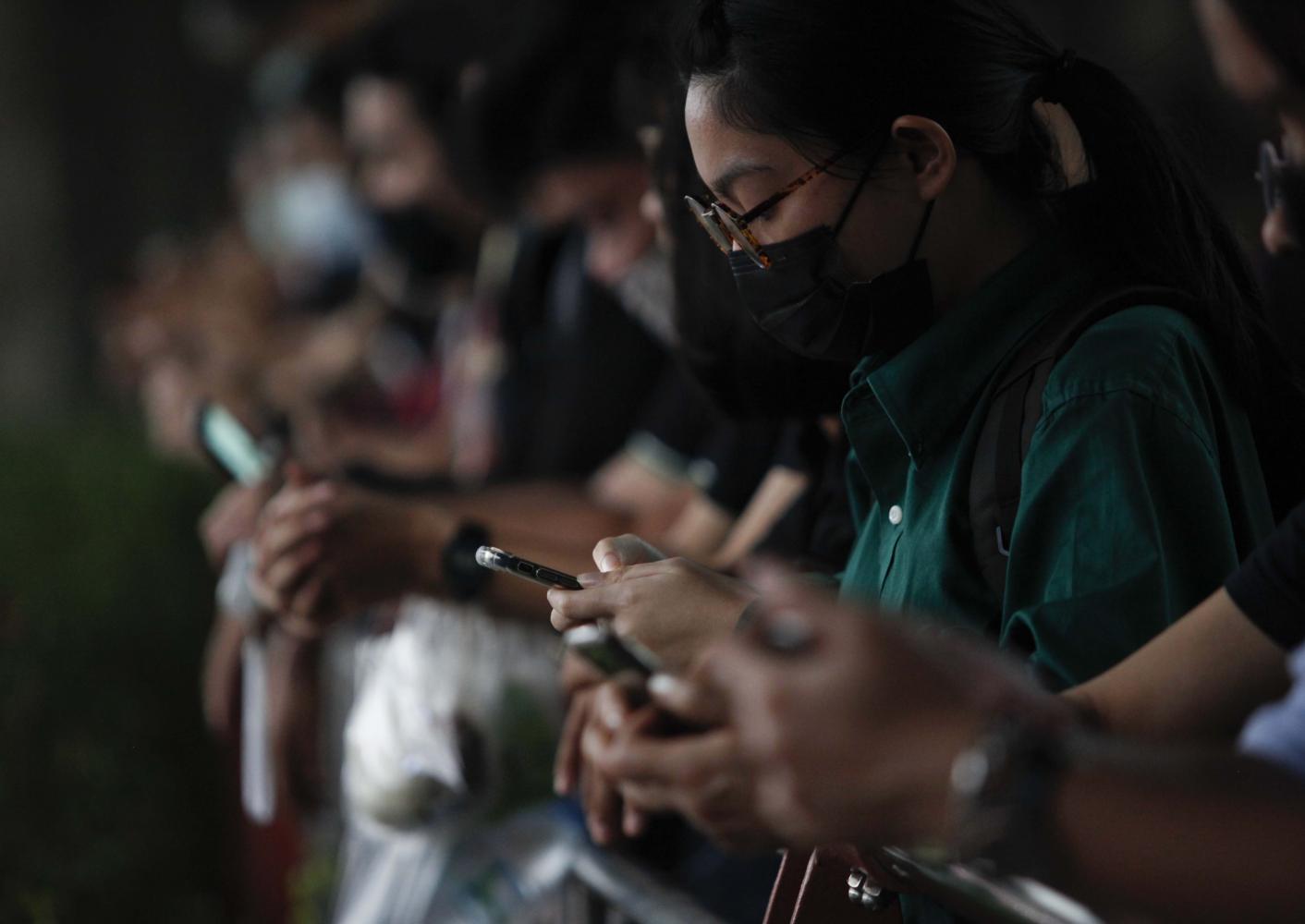
Social media has played a significant role in raising political awareness among youngsters, and many of them believe that they can harness the power of online platforms and digital technologies in their anti-government protests.
Pavinee (last name wittheld), a 21-year-old student who has joined the three recent protest events, admitted that social media had inspired her to become politically active after exposing her to vast amounts of information not available in textbooks or classrooms.
"This information made me ask: 'how can this happen in our country?' So I did my research to get answers. And the more I read, the more I found out about injustice. So I decided to come out and fight," she said.
According to Ms Pavinee, who uses Twitter and other social media platforms, various measures used by the government to limit political expression such as seeking to shut down websites and disperse the protesters reflect a lack of understanding of digital media.
"The government may think it will be over if the protest leaders are arrested and media outlets are under their control. However, no one is pulling our strings. We're fighting injustice, double standards in law enforcement and social disparities," she said.
Ms Pavinee said she thought the best course of action for the government would be for the prime minister to resign and a new charter to be drafted which promotes democracy.
"Reform of the royal institution is also necessary in this day and age," she added.
"The government can buy time, but the conservatives will only grow smaller in number. Time is on our side. We'll win this fight," she said.
Satawat (surname also withheld), a 19-year-old student who has attended most of the anti-government protests, said social media has played a pivotal role in the staging of the events and sharing of news and information.
"We're familiar with social media and we know how to use it efficiently. Old-fashioned authoritarian governments will never catch up," he said.
Mr Satawat said the more the government tries to intimidate the protesters, the more others will feel compelled to come out and join the movement.
Blocking media channels and stemming the flow of information is impossible and those who are adept at technologies will win, he said.
"Even if internet connections are cut, the protesters have ways to communicate with each other. We don't need to rely on leaders to know what's happening or to sound warnings," he said.
Rangsit University deputy rector, Pol Lt Col Kritsanapong Phutrakul, who chairs the Faculty of Criminology and Justice Administration, said handling protests is only likely to become more challenging for police.
He suggested the authorities emphasise communication over threats and intimidation which only trigger hostility. He noted the numbers attending the events had only grown following police threats of arrest or legal action against the movement's leaders.
"The use of force should be a last resort and it is the police's duty to maintain political impartiality as much as possible," he argued.
While Pol Lt Col Kritsanapong welcomed the lifting of the emergency situation order, he said the organisational structure and centralisation of power within the force make it vulnerable to manipulation by politicians.
"I think the laws governing the police give too much power to politicians, which makes it hard for officers to act without discrimination.
"That was apparent in the different approaches taken in the Red Bull case and the protest leaders case," he said.
Meanwhile, a source in the Royal Thai Police agreed political protests are a cornerstone of the right to free expression; so while officers should seek to prevent protests erupting into violence, dialogue must always be the first step to resolving conflict.
The source admitted that heavy-handed dispersal methods, such as the recent use of water canons laced with chemicals, can lead to a backlash which only increases the participation and fury levels of subsequent demonstrations.
He added that he and his colleagues were well aware of the importance of evaluating situations fairly and even without the emergency order still had plenty of authority to act, if necessary, under Computer Crime Law and Criminal Code.